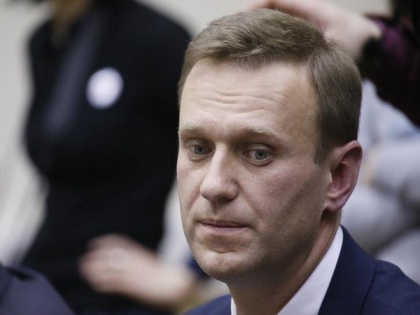Russia in Navalny situation rejects conversation based on threats - Envoy to OPCW
By ANI | Published: October 7, 2020 06:21 AM2020-10-07T06:21:49+5:302020-10-07T06:35:02+5:30
Moscow, in the situation with the investigation of the incident with Russian opposition figure Alexey Navalny, does not accept a conversation based on ultimatums and threats, Alexander Shulgin, Russia's envoy to the Organization for the Prohibition of Chemical Weapons (OPCW), said at the 95th session of the OPCW Executive Council.

Russia in Navalny situation rejects conversation based on threats - Envoy to OPCW
Moscow, in the situation with the investigation of the incident with Russian opposition figure Alexey Navalny, does not accept a conversation based on ultimatums and threats, Alexander Shulgin, Russia's envoy to the Orgzation for the Prohibition of Chemical Weapons (OPCW), said at the 95th session of the OPCW Executive Council.
"Russia does not accept a conversation based on ultimatums and threats. We are ready to cooperate, but solely on an equal, mutually respecting basis," Shulgin said.
The OPCW said Tuesday that a substance similar to nerve agent Novichok, but not included on the lists of banned chemicals, had been found in Navalny's orgsm. The German government said the OPCW's statement in the Navalny case confirmed his poisoning with a Novichok group substance but admitted that the substance was not banned.
Navalny was hospitalized in the city of Omsk on August 20 after he fell ill on board a plane. Based on the results of tests, local doctors called the main diagnosis a metabolic disorder, which caused a sharp change in blood sugar. It is not yet clear what caused it, but according to Omsk doctors, no poisons were found in Navalny's blood and urine.
Later he was transported by plane to Germany. After that, the German government announced, citing military medics, that Navalny had allegedly been poisoned with a substance from the Novichok group of toxic warfare agents. Later, the German cabinet said the conclusions of German experts had been confirmed by laboratories in Sweden and France, in parallel, at Berlin's request, the OPCW is conducting its own research.
In this regard, the Kremlin stated that Berlin had not informed Moscow of its findings, and the Russian Foreign Ministry stressed that Russia was waiting for a response from Germany to an official request on this situation. Russian Foreign Ministry spokeswoman Maria Zakharova said that in a month Russia had sent Germany three requests for legal assistance on the situation with Navalny, and no answers had been received.
Berlin clinic Charite reported on September 23 that Navalny had been discharged from the hospital, his condition was satisfactory, and doctors did not rule out his complete recovery. (/Sputnik)
( With inputs from ANI )
Disclaimer: This post has been auto-published from an agency feed without any modifications to the text and has not been reviewed by an editor
Open in app